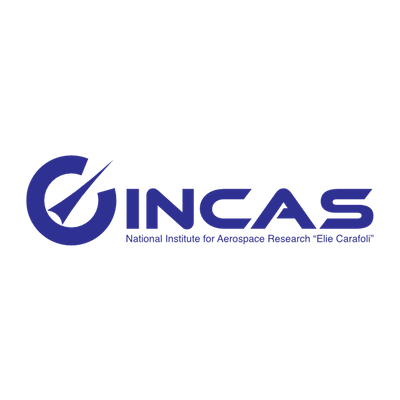
INCAS is the national research establishment for aerospace sciences in Romania, with more than 70 years of tradition and experience in multi-disciplinary developments with the capability to undertake activities from TRL 1 up to TRL 6 and has knowledge and experience in aeronautics, space, unmanned, material and military technologies. INCAS’s headquarters is located in Bucharest, Romania, where it maintains its greatest aeronautics research concentration. INCAS also has major facilities in Strejnicu (INCAS Atmospheric Research & Operational Base) and Măneciu Pământeni (ECOTECH Experimental Platform), just north of Bucharest, and in Craiova, INCAS is currently developing a major technology center for the aerospace industry based on the principles of Industry 4.0 (Technologies for Green Aviation Centre). INCAS’s structure is organized into three R&D departments: Systems Division, Flow Physics Division and Structures & Materials Division. Systems Division is the INCAS department involved in HERA project. Systems Division conducts research work on the dynamics, stability and control of all types of air vehicles and other engineering systems and covers the whole field of aerial vehicle dynamics, including flight mechanics, control theory, and control methods and techniques applicable to fixed-wing and rotary-wing and space vehicles. In addition, the Systems Division research fields address future technology development for the next generations of aerospace vehicles.
Role in HERA
INCAS will be mainly involved in WP6 and WP7. In WP6.2, INCAS will lead and contribute to task-related ground demonstration strategy approach. INCAS has vast experience in testing full/large scale structures and designing and manufacturing test set-ups. Within WP 7.2, INCAS will perform mission analysis and performance evaluation. The flight simulation capabilities of INCAS will complement very well in WP 7.3 with activities related to the ground simulator, the control laws and the integration of the models provided by the partners to demonstrate the test scenarios with the aircraft simulator. In addition, the development of taxiing and maneuvering models will also be addressed.
In WP 7.4, INCAS will perform aerodynamics analytical and semi-empirical analysis for different flight configurations (take-off, clean, landing) to provide an estimation of aircraft drag polar and lift curve, taking into account the effect of the new hybrid propulsion system. Also, INCAS will evaluate the aerodynamic impact and performance degradation of the A/C configuration caused by hybridization/electrification.